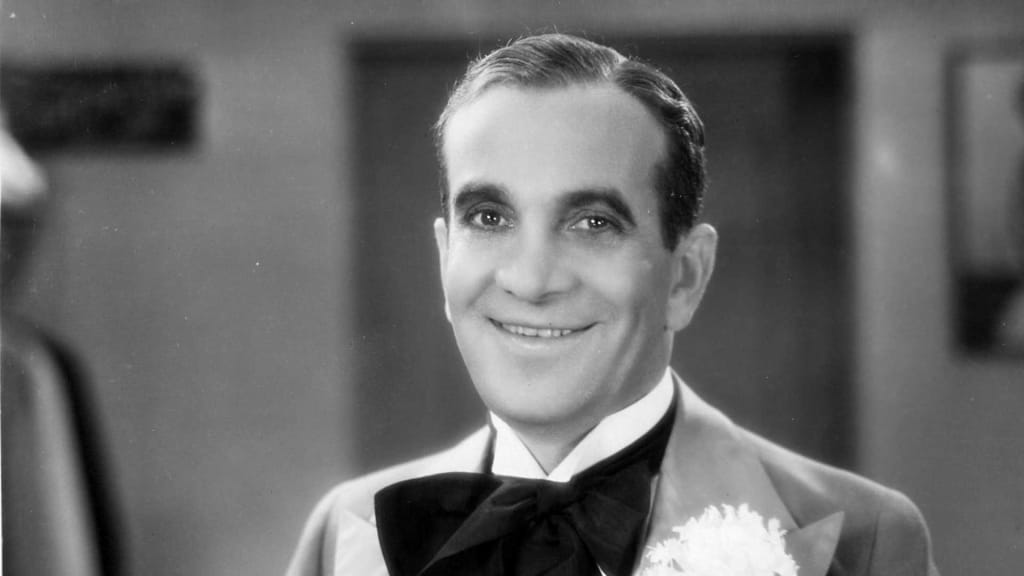A Filmmaker's Guide to the Best Performances: Al Jolson
b. 28th May, 1886 - d. 23rd October, 1950

Al Jolson was known as one of the greatest entertainers of his day and is possibly one of the greatest entertainers in history after the likes of Michael Jackson and Elvis Presley. An incredible singer, Jolson also played the piano, did vaudevillian theatre and dance, performed on screen in film and gave live performances. He really was a man of all talents. But, he was probably most famous for his role in the very first 'talkie' in 1927 playing the lead role in the legendary classic film - "The Jazz Singer" (1927). The storyline of the film is just as famous as the fact it was the first 'talkie' in which a Jewish man is torn between the tradition of his faith due to his strict father who wishes for him to move forward in Judaism, and his love for being a Jazz Singer. The rage of choosing between the two causes rift between the family and ultimately, he leaves home to seek his dream out.
"The Jazz Singer" (1927) has endured a legacy of almost 100 years' and proves to be one of the most successful classic films of all time due to its diversity of genre. It is by far, Al Jolson's greatest performance on the screen and one of the greatest performances on screen of the early 20th century. Today, we are going to have a look at Jolson's greatest performance under the microscope in a short piece I have devised in which I seek to explain the complexities of the storyline. Let's take a look then...
Conflict in “The Jazz Singer” (1927)

The way in which the film "The Jazz Singer" (1927) presents conflict and struggle is first and foremost, but not limited to, the familial traditions of practicing Judaism in a strict and ordered fashion. The son of the family who instead seeks to perform jazz music strikes a rift between his family with the father believing that his son is a traitor to his faith and his mother being swayed one way and then the other.
Now, in this film there are several types of conflict in this movie and they include:
1. Familial Conflict - the most basic part of the storyline in which the son goes against his father's wishes
2. Inner-Conflict - the times at which the son returns home in order to rectify his mistakes, ultimately leading to the climactic ending to the film
3. Professional Conflict - the son seeks to make his dreams come true in the world of jazz but has not yet contemplated the amount of struggling he will first have to do to get there
4. Maternal Conflict - the mother resists the father's wishes for the son to be a stricter Jewish Man, whereas she also resists the son's wishes to leave and perform for the rest of his life. She is constantly torn between the two and this makes for an excellent viewing experience.
When we watch this film, we are introduced to each conflict in parts and then, they come together to form the climax of the film - this is something that was a fairly new concept in filmmaking and storytelling combinations of the day. However, one thing that "The Jazz Singer" (1927) does trip up against is its change in meaning through the course of the 20th century. Facing obvious problems because of its portrayal of blackface, the film fell short of its new-age audience who refused to see it.
Blackface has always been a controversial topic in this film and has seen it ranked amongst the likes of the heavily racially insensitive "Birth of a Nation" (by which I think the two are nothing alike even though they both show racial discrimination). Whereas the conflicts of race in "Birth of a Nation" are more clear - in "The Jazz Singer" (1927) the 5th and final conflict is that of a mutual race struggle.
I think we often forget that at this time, Jewish people were subject to a very similar racial prejudice as African-Americans, but obviously not the same and by no means at the same level. However, the blackface can be argued two different ways. One way, it is purely racist by depiction alone and the other way it showcases the mutual struggle of both African-Americans and Jewish people in this particular time period. Both of which, however, portray some lack of understanding of race politics and therefore counter the original thought of mutual struggle with racial prejudice. Thus, the entire thing actually stays in the negative.
Conflict in "The Jazz Singer" (1927) is always a controversial topic not only because of the use of blackface, but because of the depiction of Jewish people. It is also racially insensitive to the Jewish race, depicting them as overtly traditional and inept at evolving with the new era's times (by which I mean the roaring 20s). However, the conflict at heart rests with the familial connection. The conflict between father and son, minus the racial depictions, can be applied to any singular culture from the Jewish race to the Chinese and even to the Indians and the Italians. This makes the conflict at the heart of the film universally understood and so, this must be the reason it has endured its controversies.
About the Creator
Annie Kapur
200K+ Reads on Vocal.
English Lecturer
🎓Literature & Writing (B.A)
🎓Film & Writing (M.A)
🎓Secondary English Education (PgDipEd) (QTS)
📍Birmingham, UK






Comments
There are no comments for this story
Be the first to respond and start the conversation.